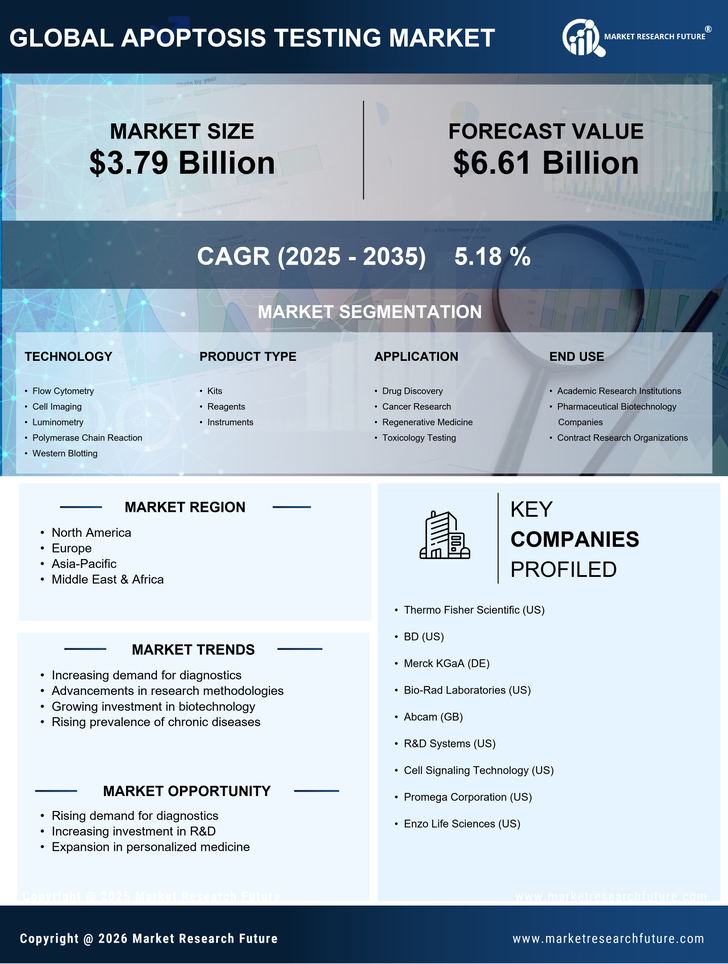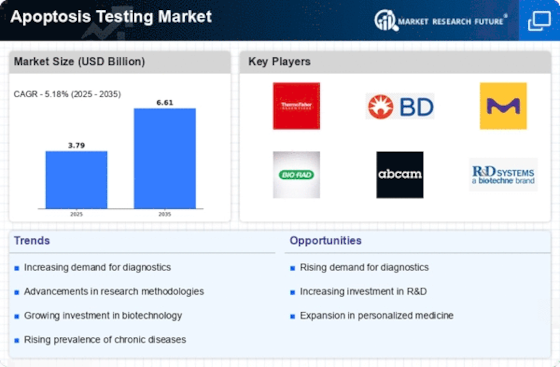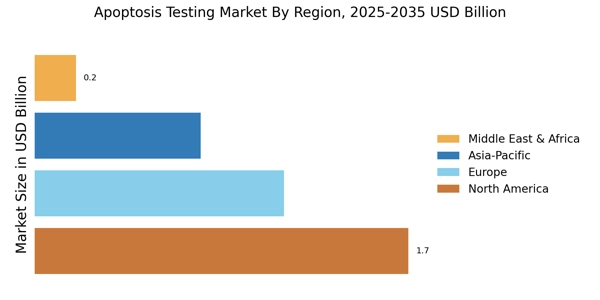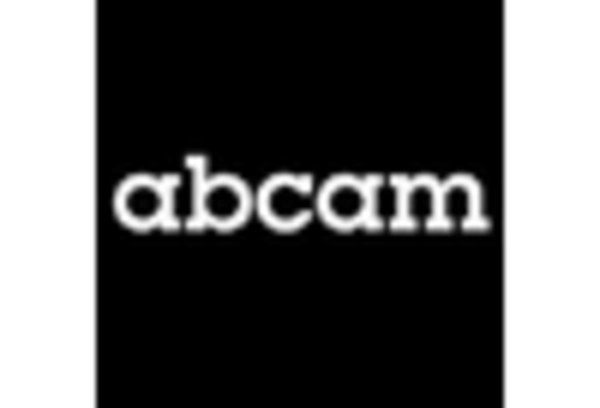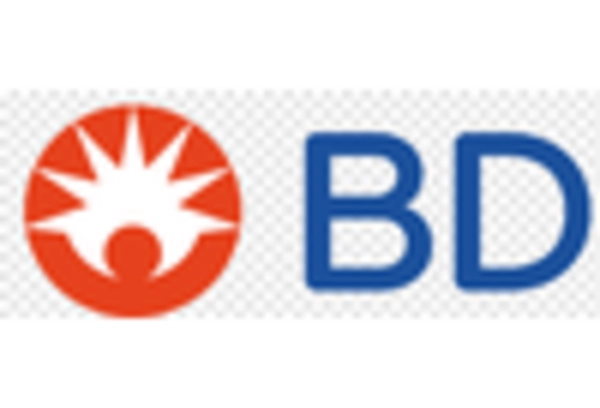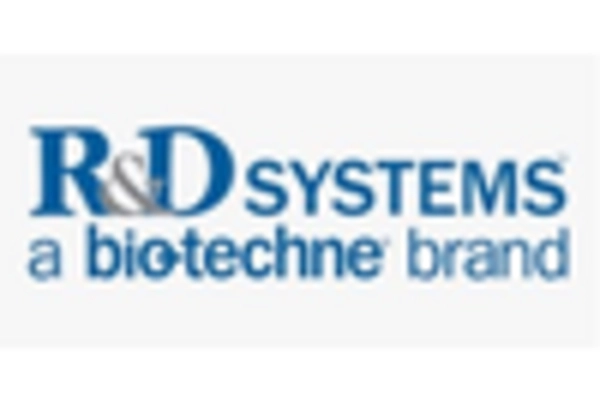Rising Demand in Drug Development
The Apoptosis Testing Market is witnessing a notable increase in demand driven by the pharmaceutical sector's focus on drug development. As the industry shifts towards more targeted therapies, understanding the mechanisms of apoptosis becomes essential. This is particularly relevant in oncology, where apoptosis plays a critical role in cancer treatment. Recent data suggests that the apoptosis testing market is expected to reach a valuation of over 1 billion USD by 2026, reflecting the growing investment in research and development. Pharmaceutical companies are increasingly incorporating apoptosis assays into their pipelines to evaluate drug efficacy and safety. Consequently, this rising demand is propelling the growth of the Apoptosis Testing Market, as it becomes integral to the drug development process.
Increased Focus on Personalized Medicine
The Apoptosis Testing Market is significantly influenced by the rising emphasis on personalized medicine. As healthcare moves towards more individualized treatment plans, understanding the apoptotic pathways in patients becomes crucial. This focus allows for the development of therapies tailored to the specific cellular responses of individuals, particularly in cancer treatment. The market for personalized medicine is projected to grow substantially, with estimates suggesting it could reach 2 trillion USD by 2030. This trend is likely to drive the demand for apoptosis testing, as clinicians seek to identify the most effective treatment strategies for their patients. Thus, the Apoptosis Testing Market stands to gain from this paradigm shift, as it aligns with the broader goals of personalized healthcare.
Regulatory Support for Apoptosis Testing
The Apoptosis Testing Market is positively impacted by increasing regulatory support for apoptosis testing methodologies. Regulatory bodies are recognizing the importance of apoptosis in drug development and safety assessments, leading to the establishment of guidelines that encourage the use of apoptosis assays. This regulatory backing is crucial for pharmaceutical companies, as it provides a framework for incorporating apoptosis testing into their research and development processes. Recent initiatives by regulatory agencies suggest a growing acceptance of these tests as part of the drug approval process. As a result, the Apoptosis Testing Market is likely to benefit from this supportive environment, which may facilitate the adoption of apoptosis testing in various applications, including toxicology and therapeutic efficacy.
Technological Advancements in Apoptosis Testing
The Apoptosis Testing Market is experiencing a surge in technological advancements that enhance the accuracy and efficiency of apoptosis detection methods. Innovations such as high-throughput screening and advanced imaging techniques are becoming increasingly prevalent. These technologies allow researchers to analyze large sample sizes quickly, thereby accelerating the pace of drug discovery and development. According to recent estimates, the market for apoptosis testing technologies is projected to grow at a compound annual growth rate of approximately 8% over the next five years. This growth is indicative of the increasing reliance on sophisticated methodologies to understand cellular processes, which is crucial for developing targeted therapies. As a result, the Apoptosis Testing Market is likely to benefit from these advancements, leading to improved outcomes in both research and clinical settings.
Growing Research Activities in Academic Institutions
The Apoptosis Testing Market is bolstered by the increasing research activities in academic institutions worldwide. Universities and research centers are investing heavily in understanding cellular mechanisms, including apoptosis, to advance scientific knowledge and therapeutic applications. Recent statistics indicate that funding for biomedical research has seen a steady increase, with many institutions prioritizing studies related to cell death and its implications in various diseases. This growing interest is likely to enhance the demand for apoptosis testing products and services, as researchers require reliable tools to conduct their experiments. Consequently, the Apoptosis Testing Market is expected to thrive as academic institutions continue to contribute to the body of knowledge surrounding apoptosis and its role in health and disease.
